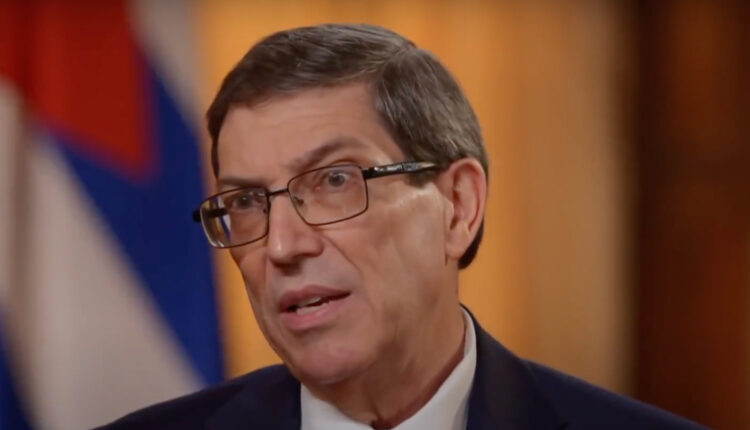
One on one with Cuba’s foreign minister
By Dan De Luce and Mary Murray
The Cuban government is disappointed President Joe Biden has kept in place economic sanctions on Havana imposed by his predecessor, but the government remains ready to reopen a dialogue with the United States, Cuba’s foreign minister said in an interview.
Speaking to NBC News’ Andrea Mitchell in New York, Foreign Minister Bruno Rodríguez Parrilla said it was a mistake to continue enforcing sanctions introduced by former President Donald Trump’s administration, particularly amid a pandemic.
“Maybe there is an inertia effect. It’s a pity that President Biden couldn’t implement his own policy toward Cuba,” Rodríguez said. “It’s a terrible mistake to continue implementing this kind of cruel sanctions, even sanctions during a pandemic.”
He accused the Biden administration of neglecting the Caribbean and Latin American region but said he was hopeful the U.S. might revisit its policies toward Cuba.
“I hope that, because of the nature of this government, it could be possible to expect a positive step.”
Rodríguez said the policies of former President Barack Obama, who in a break with past presidents eased restrictions on travel and trade with Cuba, proved it was possible to have a less contentious relationship.
“The years 2015, 2016 show that it’s possible to have a different kind of relationship between both our countries, despite profound political differences between the governments,” he said. “And we are ready for establishing … some responsible dialogue with the U.S. administration.”
The Trump administration reversed Obama’s détente with Cuba, imposing over 200 trade, travel and financial restrictions while returning Cuba to the list of state sponsors of terrorism. Removing the terrorism designation is a time-consuming process that requires congressional approval.
The Trump administration also slashed staffing at the U.S. Embassy in Havana, effectively shutting down consular services. It justified the move by citing unexplained health incidents that affected personnel at the mission. Similar health incidents have since been reported at other embassies around the world.
Rodríguez said his government would welcome the return of U.S. diplomats to Havana and would like to see Washington grant permission for the Cuban Embassy to return to full staffing.
The foreign minister played down unprecedented protests in July that saw Cubans take to the streets across the country to air grievances over food shortages, power outages and the regime’s handling of the coronavirus pandemic.
Rodríguez alleged that many of those protesting had been manipulated by Florida-based groups that were spreading “misinformation” online to foment opposition to the regime.
But he acknowledged “economic conditions are very difficult for Cubans” and that people had “anxiety” about the situation. He said the effects of Covid and U.S. sanctions were mainly to blame for the country’s economic troubles.
Human rights groups say hundreds of Cubans were jailed for taking part in peaceful protests, and that the regime disrupted internet access and ramped up its repression of critics since the July demonstrations.


